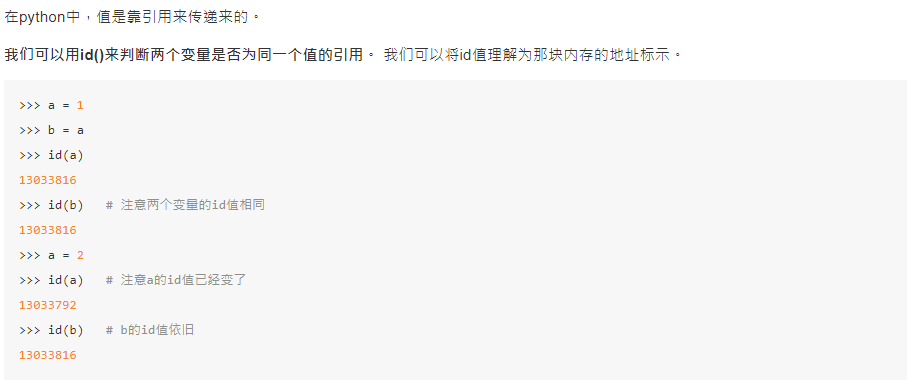接上:http://www.cnblogs.com/liu-wang/p/8973273.html
3 元组

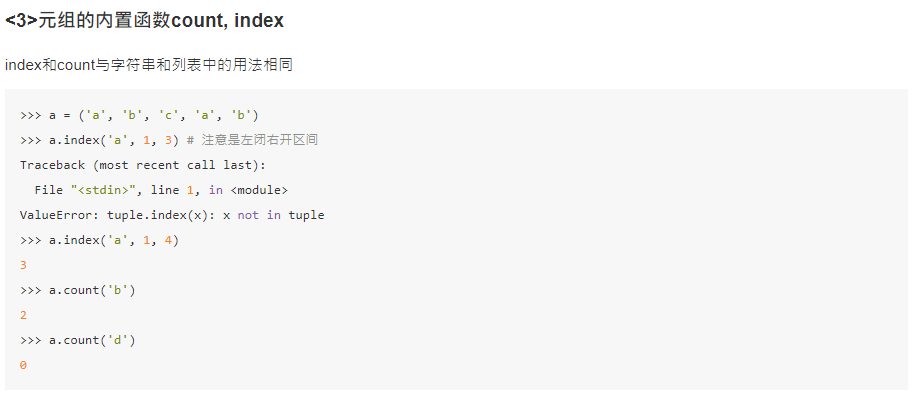
4 字典
4.1 字典的介绍
<2>软件开发中的字典
变量info为字典类型:
info = {'name':'班长', 'id':100, 'sex':'f', 'address':'地球亚洲中国北京'}
说明:
- 字典和列表一样,也能够存储多个数据
- 列表中找某个元素时,是根据下标进行的
- 字典中找某个元素时,是根据'名字'(就是冒号:前面的那个值,例如上面代码中的'name'、'id'、'sex')
- 字典的每个元素由2部分组成,键:值。例如 'name':'班长' ,'name'为键,'班长'为值
<3>根据键访问值
info = {'name':'班长', 'id':100, 'sex':'f', 'address':'地球亚洲中国北京'}
print(info['name'])
print(info['address'])
结果:
班长
地球亚洲中国北京
若访问不存在的键,则会报错:
>>> info['age']
Traceback (most recent call last):
File "<stdin>", line 1, in <module>
KeyError: 'age'
在我们不确定字典中是否存在某个键而又想获取其值时,可以使用get方法,还可以设置默认值:
>>> age = info.get('age')
>>> age #'age'键不存在,所以age为None
>>> type(age)
<type 'NoneType'>
>>> age = info.get('age', 18) # 若info中不存在'age'这个键,就返回默认值18
>>> age
18
4.2 字典的常见操作1
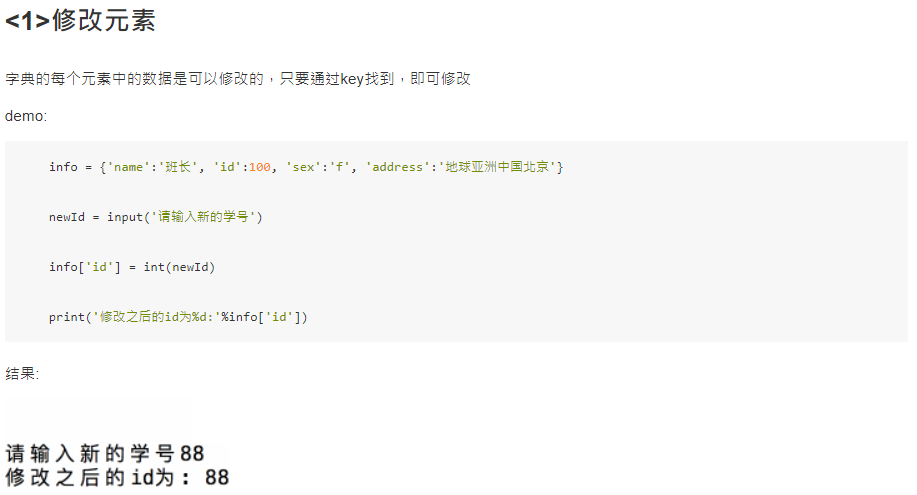
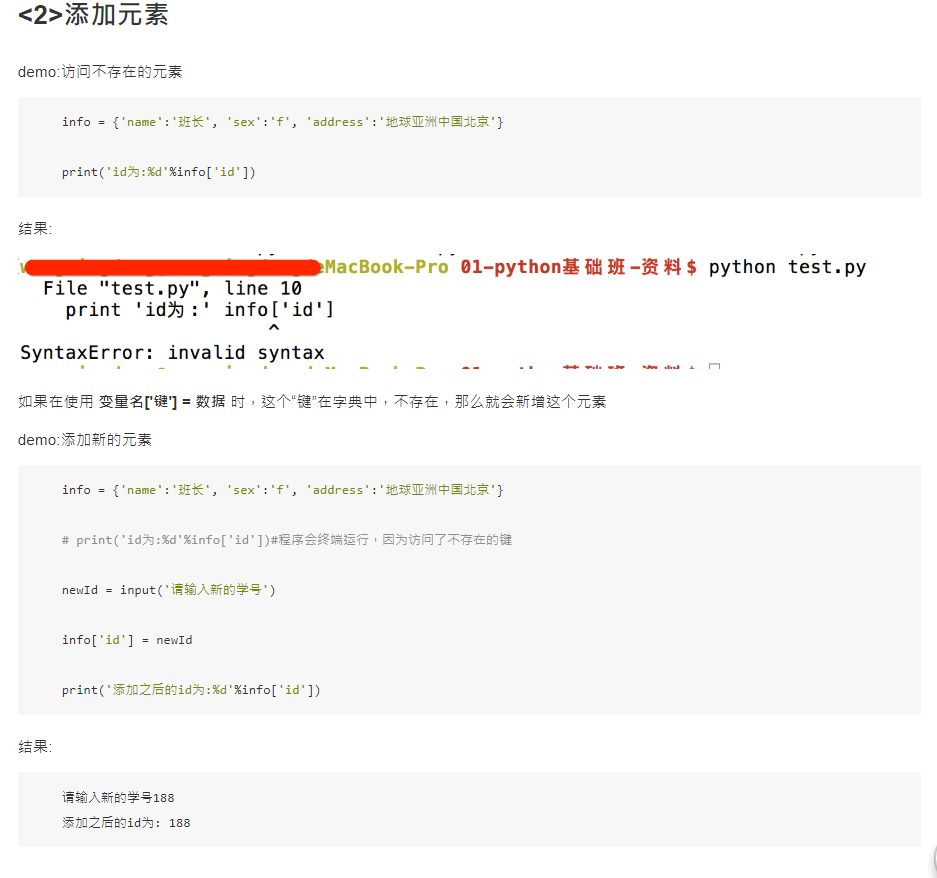



4.3 字典的常见操作2
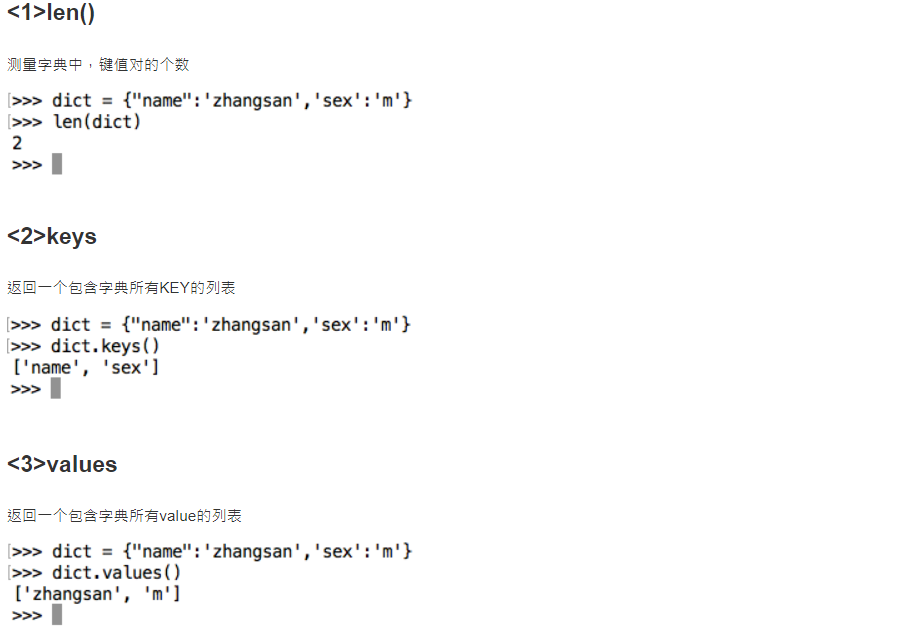
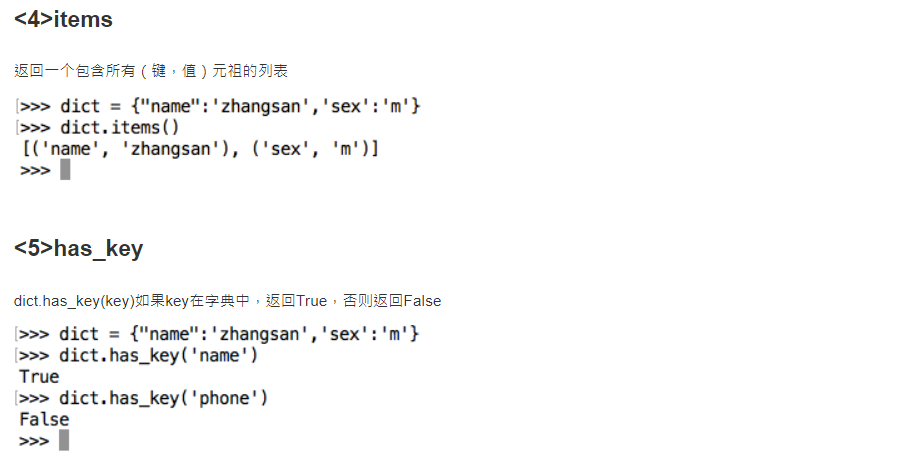
5 遍历


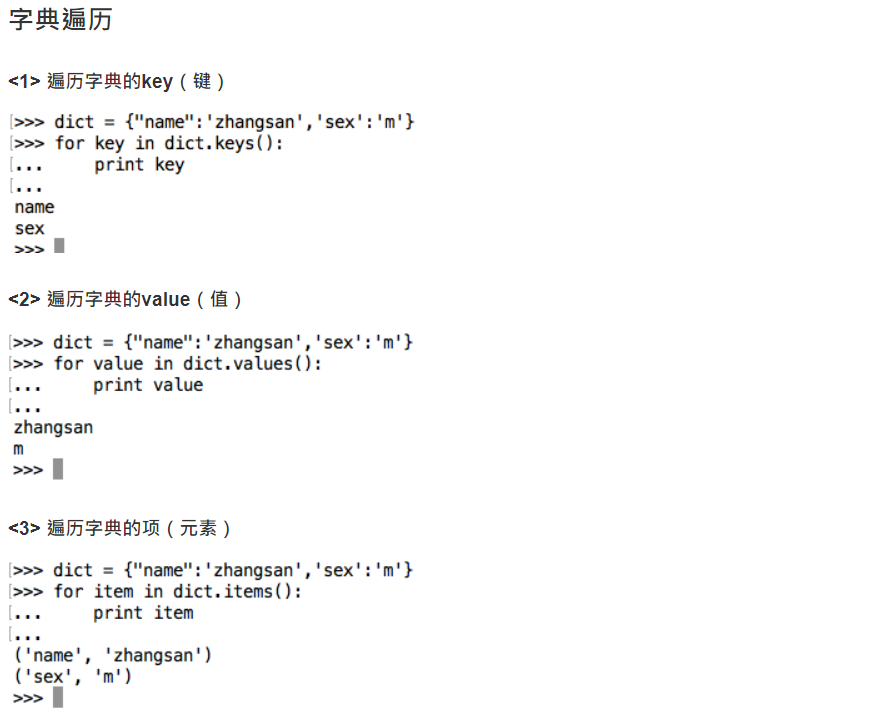

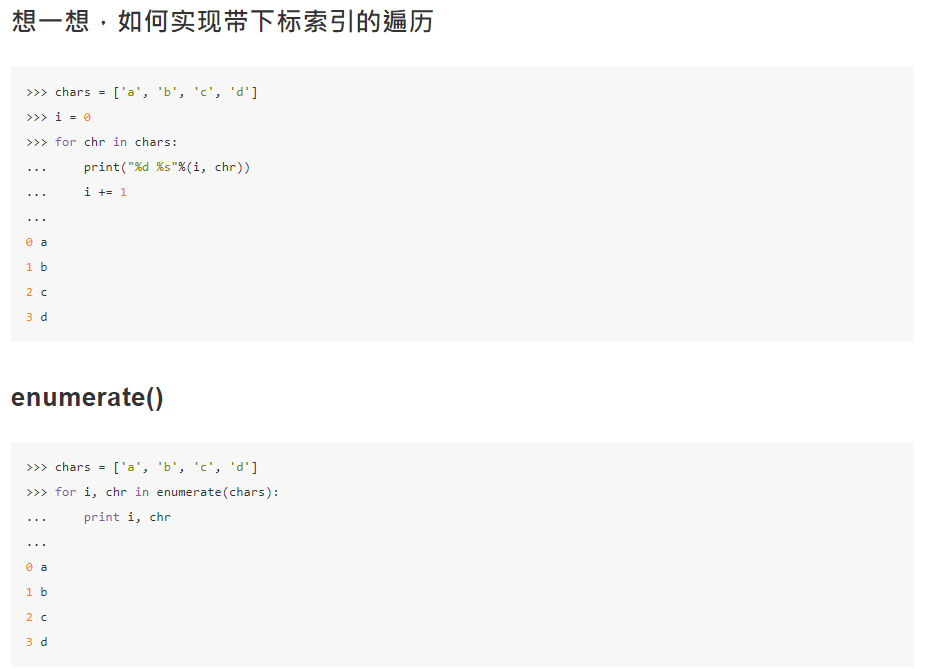
6 公共方法


python内置函数
Python包含了以下内置函数
| 序号 | 方法 | 描述 |
|---|---|---|
| 1 | cmp(item1, item2) | 比较两个值 |
| 2 | len(item) | 计算容器中元素个数 |
| 3 | max(item) | 返回容器中元素最大值 |
| 4 | min(item) | 返回容器中元素最小值 |
| 5 | del(item) | 删除变量 |
cmp
>>> cmp("hello", "itcast") -1 >>> cmp("itcast", "hello") 1 >>> cmp("itcast", "itcast") 0 >>> cmp([1, 2], [3, 4]) -1 >>> cmp([1, 2], [1, 1]) 1 >>> cmp([1, 2], [1, 2, 3]) -1 >>> cmp({"a":1}, {"b":1}) -1 >>> cmp({"a":2}, {"a":1}) 1 >>> cmp({"a":2}, {"a":2, "b":1}) -1
注意:cmp在比较字典数据时,先比较键,再比较值。
len
>>> len("hello itcast") 12 >>> len([1, 2, 3, 4]) 4 >>> len((3,4)) 2 >>> len({"a":1, "b":2}) 2
注意:len在操作字典数据时,返回的是键值对个数。
max
>>> max("hello itcast") 't' >>> max([1,4,522,3,4]) 522 >>> max({"a":1, "b":2}) 'b' >>> max({"a":10, "b":2}) 'b' >>> max({"c":10, "b":2}) 'c'
del
del有两种用法,一种是del加空格,另一种是del()
>>> a = 1 >>> a 1 >>> del a >>> a Traceback (most recent call last): File "<stdin>", line 1, in <module> NameError: name 'a' is not defined >>> a = ['a', 'b'] >>> del a[0] >>> a ['b'] >>> del(a) >>> a Traceback (most recent call last): File "<stdin>", line 1, in <module> NameError: name 'a' is not defined
多维列表/元祖访问
>>> tuple1 = [(2,3),(4,5)] >>> tuple1[0] (2, 3) >>> tuple1[0][0] 2 >>> tuple1[0][2] Traceback (most recent call last): File "<stdin>", line 1, in <module> IndexError: tuple index out of range >>> tuple1[0][1] 3 >>> tuple1[2][2] Traceback (most recent call last): File "<stdin>", line 1, in <module> IndexError: list index out of range >>> tuple2 = tuple1+[(3)] >>> tuple2 [(2, 3), (4, 5), 3] >>> tuple2[2] 3 >>> tuple2[2][0] Traceback (most recent call last): File "<stdin>", line 1, in <module> TypeError: 'int' object is not subscriptable7 引用
